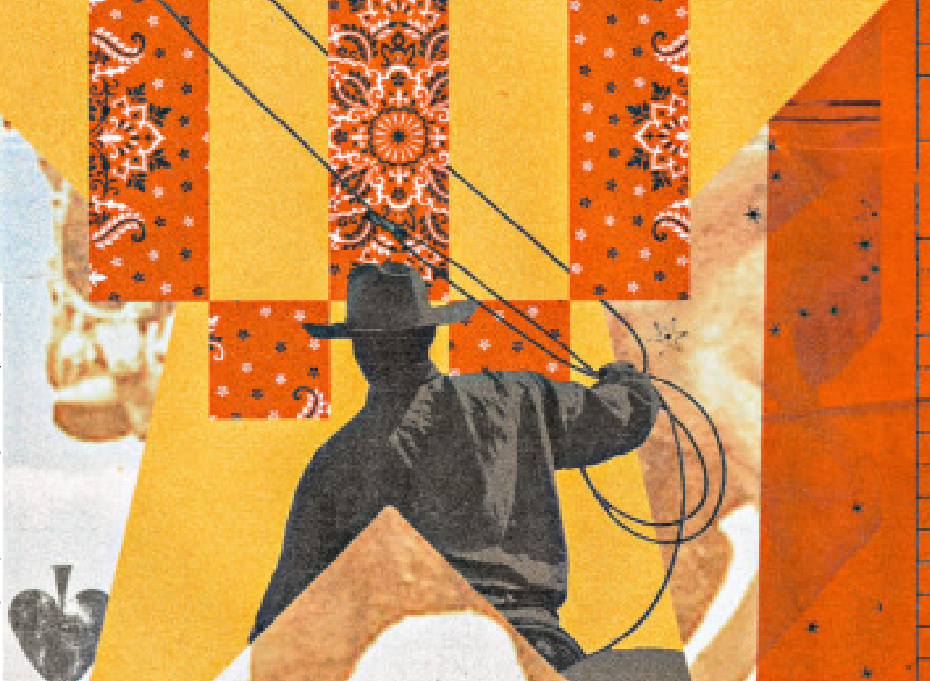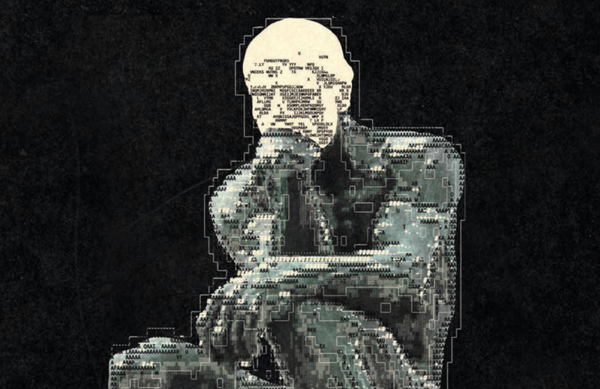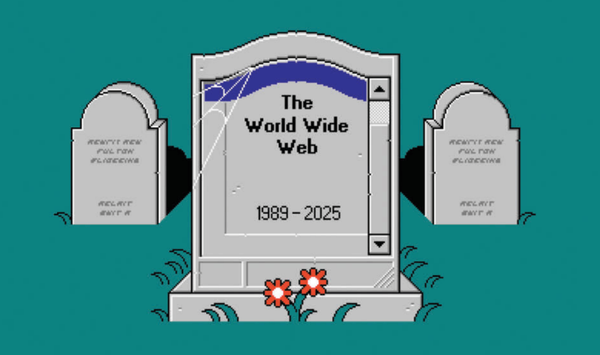流浪者国度
《连线》杂志(WIRED)的这篇卷首语探讨了“流浪者”(rogue)精神的演变 。文章指出,曾建立互联网的颠覆性精神 ,如今已变异为在网络上作恶的坏蛋、威胁民主的阴谋论者和手握重权的科技富翁 。然而,作者认为“流浪者”并非贬义词 ,并强调当下需要更多理想主义的“流浪者”来对抗现状 。

期刊《连线》(WIRED)长期以来对各种“流浪者”痴迷不已。毕竟,这份刊物诞生于20世纪90年代初,其初衷就是为了拥护互联网所带来的那种颠覆性的、破坏性的变革——以及那些为数字化、互联化的地球前景而痴狂的黑客、投机者和异想天开的疯子们。
当然,那时的《连线》无从知晓这些流浪者最终会释放出什么怪物:一大群在网络上肆虐作恶的坏蛋;一个蓬勃发展的网络阴谋论产业,其危险的信念从威胁我们孩子的健康,一直到动摇我们民主制度的根基;以及一小撮科技界的亿万富翁,他们的支票簿和扩音器从硅谷一直延伸到白宫。
是的,他们建立了互联网,并激发了一场技术革命。而如今,同样是那种无法无天的精神,在变异之后以一种远为强大的形态,正威胁着要将科技与科学所解锁的巨大进步一笔勾销。“狗狗币男孩”(DOGE Boys)【译者注:泛指通过社交媒体(如Reddit)抱团,炒作“模因股票”(meme stock)和加密货币(如狗狗币DOGE)的年轻散户投资者,其行为常被认为扰乱了传统金融市场秩序】,我说的就是你们。
在这一期的《连线》中,我们将通过各种方式向你展示,我们的世界已变得何等的“叛逆”、何等“邪恶”、何等“可危”。马特·伯吉斯(Matt Burgess)将为你带来尼日利亚“雅虎小子”(Yahoo Boys)【译者注:对尼日利亚网络诈骗犯的俗称,因其早期常使用雅虎邮箱进行诈骗而得名】的内幕故事,以及那位教他们如何对美国受害者实施高技术数字诈骗的“诈骗网红”。安迪·格林伯格(Andy Greenberg)则梳理了“幽灵枪”(ghost guns)【译者注:指通过合法购买的散装零件(包括3D打印部件)自行组装、没有序列号从而无法追踪的枪支】的发展时间线,最终聚焦于路易吉·曼吉昂(Luigi Mangione)据称用来在光天化日之下谋杀一名医疗保健公司CEO的那把枪,看看安迪亲自尝试复制那把武器的视频。此外,埃文·拉特利夫(Evan Ratliff)将讲述“齐齐安人”(Zizians)那篇宏大而令人毛骨悚然的传奇故事,这群天赋异禀的年轻技术专家成为了世界上第一个受人工智能影响的死亡邪教,并在数年混乱而暴力的时间里,据称杀害了六个人。
诈骗网红?自制枪支?人工智能死亡邪教?是的,外面的世界很艰难。但若不能在这片阴郁中寻找——甚至创造——一点叛逆的乐趣,那我们也就不是《连线》了。在本期杂志的其他地方,我们将向你介绍一个正在生根发芽、鼓舞人心的反建制叛逆新时代:安布尔·斯科拉(Amber Scorah)就是这样一个例子,她联合创办了一个非营利组织,帮助告密者安全地与大众分享信息。另一个例子是“蓝天”(Bluesky)【译者注:一个旨在构建开放、去中心化的社交网络平台,被视为挑战现有社交媒体巨头垄断的尝试】的首席执行官杰伊·格雷伯(Jay Graber),她与凯特·尼布斯(Kate Knibbs)坐下来,详细阐述了她对一个民主化社交互联网的愿景。另外,我们的装备专家还将向你展示最酷、最具反派风格的产品,来装备你的超级反派巢穴。
如果你能从我们的“流浪者特刊”中得到什么启示,我希望是这一点:“流浪者”绝非一个贬义词——即便感觉上,有比以往任何时候都多的卑鄙小人,高踞权力之巅,践踏着几乎所有的一切。事实上,我认为这个时代需要的不是更少而是更多流浪者。那些理想主义的,那些不知疲倦的流浪者。那些能够想象一个更美好世界应该是什么样子,并愿意为了带我们抵达那里而与现状斗争的新一代异想天开的疯子。
所以,去做你想在世界上看到的那种流浪者吧。请相信,《连线》将以我们基因中每一分的叛逆精神,与你并肩同行。
——凯蒂·德拉蒙德(KATIE DRUMMOND) 全球编辑总监
(目录部分节选)
- p.32 二甲基色胺之神(The God of DMT) 阿卡莎·宋(Akasha Song)秘密生产这种药物,在暗网上卖出数百万美元,并一度过着如梦似幻的生活。 作者:安迪·格林伯格(Andy Greenberg)
- p.46 找到我的凶手(Find My Murderers) 三个青少年差点就逃脱了一桩惊人罪行的制裁。然后,警方决定挑战谷歌的极限。 作者:拉克莎·瓦苏德万(Raksha Vasudevan)
- p.54 十亿流量,没有粉丝(A Billion Streams and No Fans) 他们终于成功了。一张霸榜的专辑!海量的流量!除非……这一切都不是真的。 作者:凯特·尼布斯(Kate Knibbs)
- p.62 追踪齐齐安人(On the Trail of the Zizians) 一个关于技术专家沦为恐怖分子的狂热、暴力、匪夷所思的真实故事。 作者:埃文·拉特利夫(Evan Ratliff)
- p.80 伪装者(The Pretenders) 你最喜欢的新同事,可能是一名来自朝鲜、经由人工智能强化的特工。 作者:博比·约翰сон(Bobbie Johnson)
原文分析
首先,我们拿到的不是一篇典型的新闻报道,而是《连线》这本全球知名的科技文化杂志的卷首语(Editor's Letter)。这类文章的目的是为整本杂志定下基调,阐述编辑部对某个主题的思考与立场,因此它带有鲜明的观点和引导性。本次“无赖国度”(Rogue Nation)的主题,就极具《连线》的特色。
背景阐述:《连线》杂志诞生于20世纪90年代初的互联网浪潮中,长期以来都对“无赖”(rogues)——那些挑战常规、颠覆秩序的黑客、创业者和梦想家——抱有一种近乎痴迷的赞美态度。然而,这篇卷首语深刻地反思了“无赖”精神的异化。从早期的理想主义黑客,到如今利用网络作恶的“坏蛋”(bad actors)、威胁民主的阴谋论者,以及拥有巨大权力、能影响政治的科技亿万富翁,作者认为一种变异的、更强大的“无赖”精神正在威胁人类的进步。
文章中提及了大量的人物和故事,这正是我们向“川透社”读者介绍背景知识的好机会:
- “雅虎小子”(Yahoo Boys):这是对尼日利亚网络诈骗犯的俗称。记者马特·伯吉斯(Matt Burgess)的故事揭示了这些诈骗行为如何变得产业化,甚至出现了教人行骗的“诈骗网红”。
- 路易吉·曼吉昂(Luigi Mangione):他据称使用“幽灵枪”(ghost guns)——即用散装零件(通常是3D打印)自制、无法追踪的枪支——在光天化日之下谋杀了一名医疗保健公司的CEO。这起案件让他意外地成为了网络上备受追捧的“无赖”偶像。记者安迪·格林伯格(Andy Greenberg)深入报道了此事。
- “齐齐安人”(Zizians):根据记者埃文·拉特利夫(Evan Ratliff)的描述,这是一个由科技精英组成的、世界上首个受人工智能影响的“死亡邪教”(death cult),据称在数年内杀害了六人。这展现了科技与极端思想结合的恐怖前景。
- 杰伊·格雷伯(Jay Graber):她是“蓝天”(Bluesky)公司的首席执行官。Bluesky是一个旨在建立去中心化、民主化社交网络的平台,可以看作是对当前被科技巨头垄断的社交媒体的一种“无赖式”反叛。
主题、体裁、文体与结构:本文主题是探讨“无赖”精神在数字时代从创新动力到潜在破坏力量的演变,并呼吁一种新的、理想主义的“无赖”精神。
体裁是典型的卷首语,属于议论文或评论。文体上,语言既有反思性,又充满激情和号召力,体现了《连线》一贯的风格。其结构并非新闻报道中常见的“倒金字塔体”,而是采用“提出问题(无赖精神的变质)—展示案例(介绍多篇报道)—升华主题(呼唤新型无赖)”的叙事逻辑,结构完整,层层递进。
信源、偏向与立场:《连线》作为信源,是科技文化领域的重要刊物,在美国通常被视为中间偏左的自由派媒体。这篇由全球编辑总监撰写的文章,明确代表了该杂志的编辑立场。它的
偏向是显而易见的:它批判那些唯利是图、破坏秩序的“坏无赖”,同时毫不掩饰地赞美和呼唤那些为了理想而挑战现状的“好无赖”。这是一种价值观的输出,而非客观报道。
编译建议
基于上述分析,我为你提出以下编译建议:
编译方式:考虑到这篇文章是一篇结构完整、逻辑性强、代表了《连线》杂志重要编辑立场的卷首语,最合适的编译方式是全译。全译能够最大限度地保留原文的论证逻辑、反思语气以及作者充满激情的呼吁。进行节译会破坏文章层层递进的结构和完整的思想表达,而它本身就是一篇独立的引言,不适合与其他文章进行综合编译。
新闻原文
AT WIRED, WE’VE had a long-running obsession with rogues. This is, after all, a publication that was founded in the early ’90s, born of a desire to champion the subversive, disruptive advent of the internet— and the hackers, hustlers, and blue-sky lunatics consumed by the possibilities of a digitized and interconnected planet.
Of course, WIRED had no idea, then, just what those rogues would ultimately unleash: a proliferation of bad actors wreaking havoc across the web; a booming industry of online conspiracy theorists whose dangerous convictions threaten everything from the health of our children to the strength of our democracies; and a coterie of tech billionaires with checkbooks and megaphones that reach from Silicon Valley all the way to the White House.
Yes, rogues built the internet and inspired a technological revolution. Now, a mutated and much more powerful version of that same lawless spirit threatens to undo much of the incredible progress that technology and scientific inquiry have unlocked. DOGE Boys: I’m looking at you.
In this edition of WIRED, we’re finding plenty of ways to show you just how roguish, how crooked, and how precarious our world has become. Matt Burgess brings you the inside story of Nigeria’s Yahoo Boys and the “scam influencer” teaching them how to pull sophisticated digital cons on American victims. From Andy Greenberg, a timeline of ghost guns culminating in the one that Luigi Mangione allegedly used to murder a health care CEO in broad daylight—an act that’s turned Mangione into the internet’s most beloved rogue in recent memory. (Head to WIRED.com to watch what happened when Andy tried to re-create that weapon himself.) And from Evan Ratliff, the sweeping, bone-chilling saga of the Zizians, a group of gifted young technologists who became the world’s first AI-inflected death cult and allegedly killed six people over several violent, chaotic years.
Scam influencers? DIY guns? AI death cults? Yes, things are rough out there. But we wouldn’t be WIRED without finding—and even creating—a little bit of roguish fun amid the gloom. Elsewhere in this issue, we’ll introduce you to a new and inspiring era of antiestablishment rebellion that’s taking root: Amber Scorah, the cofounder of a nonprofit that helps whistleblowers safely share information with the masses, is one such example. Another is Bluesky CEO Jay Graber, who sat down with Kate Knibbs to elaborate on her vision for a democratized social internet. Plus, our Gear experts will show you the slickest, most villainous products to outfit your supervillain lair.
If you take one thing from our Rogues Issue, I hope it’s this: “Rogue” is by no means a pejorative—even if it feels like more nasty bad actors than ever, perched in the highest seats of power, are running roughshod over pretty much everything. In fact, I’d argue that this moment calls for more rogues rather than fewer. The idealistic rogues. The indefatigable rogues. The new iteration of blue-sky lunatics who can imagine what a better world should look like—and are willing to fight the status quo to get us there.
So be the rogue you want to see in the world, and know that WIRED, with every ounce of rebel spirit in our DNA, will be right there with you.
—KATIE DRUMMOND Global Editorial Director
(CONTENTS section excerpt)
- p.32 The God of DMT Akasha Song manufactured the drug in secret, sold it for millions on the dark web, and for a while—lived a literal dream. by Andy Greenberg
- p.46 Find My Murderers Three teens almost got away with a shocking crime. Then police decided to test the limits of Google. by Raksha Vasudevan
- p.54 A Billion Streams and No Fans They finally made it. A chart-topping album! Loads of streams! Unless none of it was real. by Kate Knibbs
- p.62 On the Trail of the Zizians The delirious, violent, impossible true story of techies turned terrors. by Evan Ratliff
- p.80 The Pretenders Your favorite new coworker might be an AI-enhanced operative from North Korea. by Bobbie Johnson





